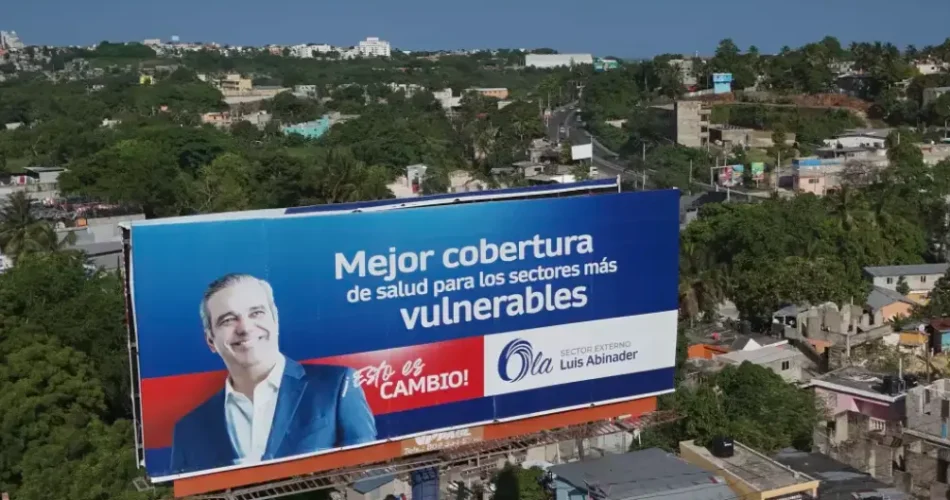SANTO DOMINGO – More than eight million Dominicans go to presidential elections on Sunday in which President Luis Abinader arrives as the favorite candidate to revalidate his mandate, after a campaign starred by the migration challenge in the country and border security with neighboring Haiti.
Polls maintain Abinader, who came to power in 2020 through the Modern Revolutionary Party, as favorite and faces two opposition candidates, the former mayor of the country’s second largest city, Abel Martinez, candidate of the Dominican Liberation Party (PLD) and three-time president Leonel Fernandez, of the People’s Force.
Abinader, one of the most popular leaders in the region, has underpinned his acceptance with controversial measures to address the upturn in Haitian migration, in the face of the neighboring nation’s decline due to the impact of violence and gangs accentuated since the assassination in 2021 of then President Jovenel Moïse.
An issue that has also been addressed by the other two opposition candidates with promises to control the migratory flow and maintain deportations.
The president and candidate for reelection initiated during his administration the construction of a border wall in February 2022, in an approach similar to that of former President Donald Trump in the United States, to prevent the massive crossing of Haitians into the Dominican Republic on a border of about 400 kilometers.
But he has also refused to set up refugee camps for those fleeing violence and instability in Haiti and has increased deportations of undocumented migrants to more than 175,000 in the last year, according to government figures.
These measures, however, have also drawn criticism from human rights organizations as discriminatory.
“These collective expulsions are a clear violation of the Dominican Republic’s international obligations and put the lives and rights of these people at risk. The forced returns to Haiti must stop,” said Ana Piquer, Amnesty International’s Americas director, in an open letter to the president of the Dominican Republic.
The latter, for his part, took the issue to the last United Nations General Assembly and to the meeting of its Security Council, where he was categorical in claiming that the situation in Haiti “cannot wait any longer” and that the deployment of an international force for its pacification is urgent.
The candidates’ proposals on the migratory situation have captured the interest of voters like Perla Concepción, a young 29-year-old secretary, who told The Associated Press that it is her main concern and that she will keep it in mind on Sunday when she goes to vote.
“It worries me,” she acknowledged hoping for a change in the next four years of the new term. “We see massive migration on the part of our neighbors and I feel there is no control.”
On the other side, there are those affected by the deportation measures, who do not vote in the elections. Deborah Dimanche, with two years residing in the Dominican Republic, was detained by immigration officials while on her way to her place of work and was taken to the detention center located in Haina, from where she would be deported.
“They say they are not going to hand her over, that they are going to purge her and send her to Haiti,” her partner Juan Rene, a Dominican national, told The Associated Press on Thursday at the gate of the center, pleading to be allowed to talk to her.
Jonairis Montero, a 31-year-old social media management worker, hopes for transparent elections and is leaning toward revalidating Abinader’s administration. “He has done a good job,” she defended.
“I think we can give him the opportunity again to see what other new things he can continue to offer,” the woman insisted and mentioned that an improvement in education is needed. According to her, Dominican governments have only invested in infrastructure and not in the quality of education.
In Sunday’s elections, Dominicans will also elect 178 deputies and 32 senators for the National Congress for the next four years.
For the new government, there will also be challenges to solve on the economic front, such as those mentioned by the World Bank in a report in April of this year.
“The engines of this exceptional growth are reaching their limits, due to low productivity growth in recent years, insufficient human capital to meet the needs of the business sector, the occurrence of disasters related to climate change and distortions in key markets,” the document stated.

